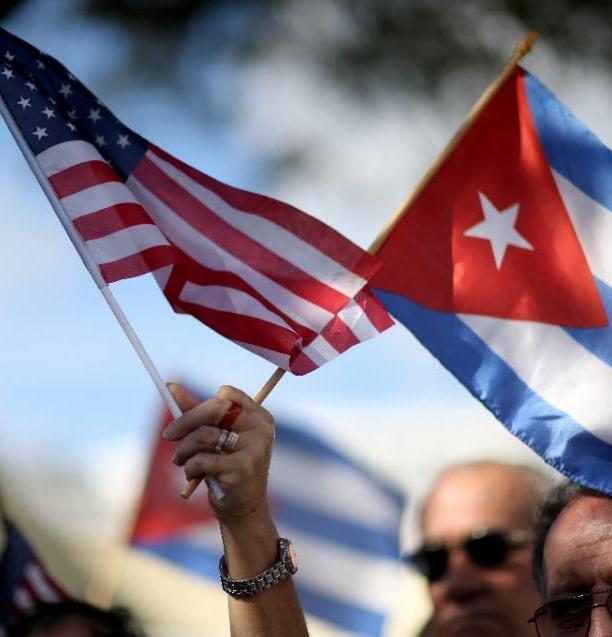U.S. drops Cuba from state terrorism list, paving the way for embassies
The State Department today removed Cuba from the list of states that sponsor terrorism, paving the way for full diplomatic recognition and an opening of embassies. It has been 45 days since President Barack Obama announced plans to remove Cuba from the list of nations that support terrorism, and there was no attempt by Congress to stop the action. The State Department said that while differences with the country remain, they weren’t a bar to Cuba’s removal from the list. Only Syria, the Sudan and Iran remain on the list. Cuba was added to the terror list in 1982, accused by the U.S. of providing support to terrorist organizations in Latin America, including the Revolutionary Armed Forces of Colombia, or FARC. But the State Department admits those ties have “become more distant.”
While the U.S. has significant concerns and disagreements with a wide range of Cuba’s policies and actions, these fall outside the criteria relevant to the rescission of a State Sponsor of Terrorism designation.
Spokesman Jeff Rathke
Even as many of the biggest hurdles, including the terrorism designation, have been cleared, Washington and Havana are still wrangling over American demands that its diplomats be able to travel throughout Cuba and meet with dissidents without restrictions. The Cubans are wary of activity they see as destabilizing to their government. Both the U.S. and Cuba say the embassies are a first step in a larger process of normalizing relations. That effort would still have to tackle bigger questions such as the embargo, which only Congress can fully revoke, as well as the future of the U.S. military prison at Guantanamo Bay and Cuba’s democracy record.

US Cuba Americas